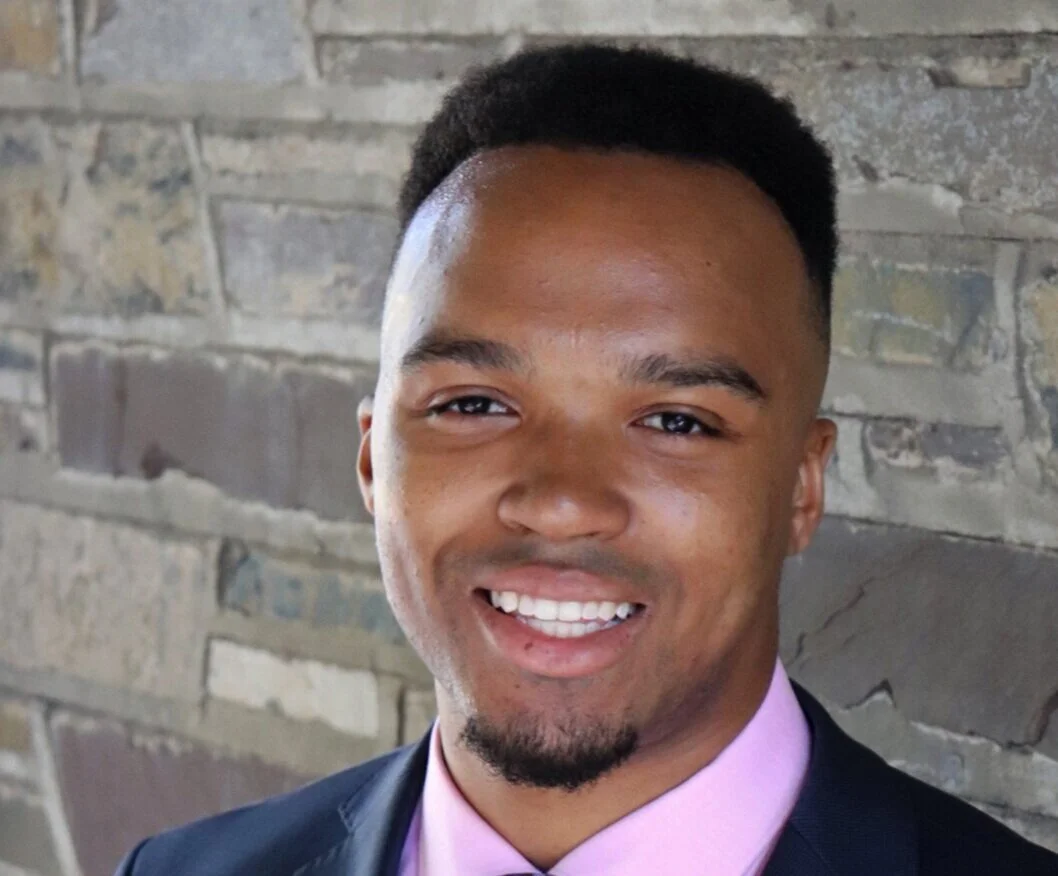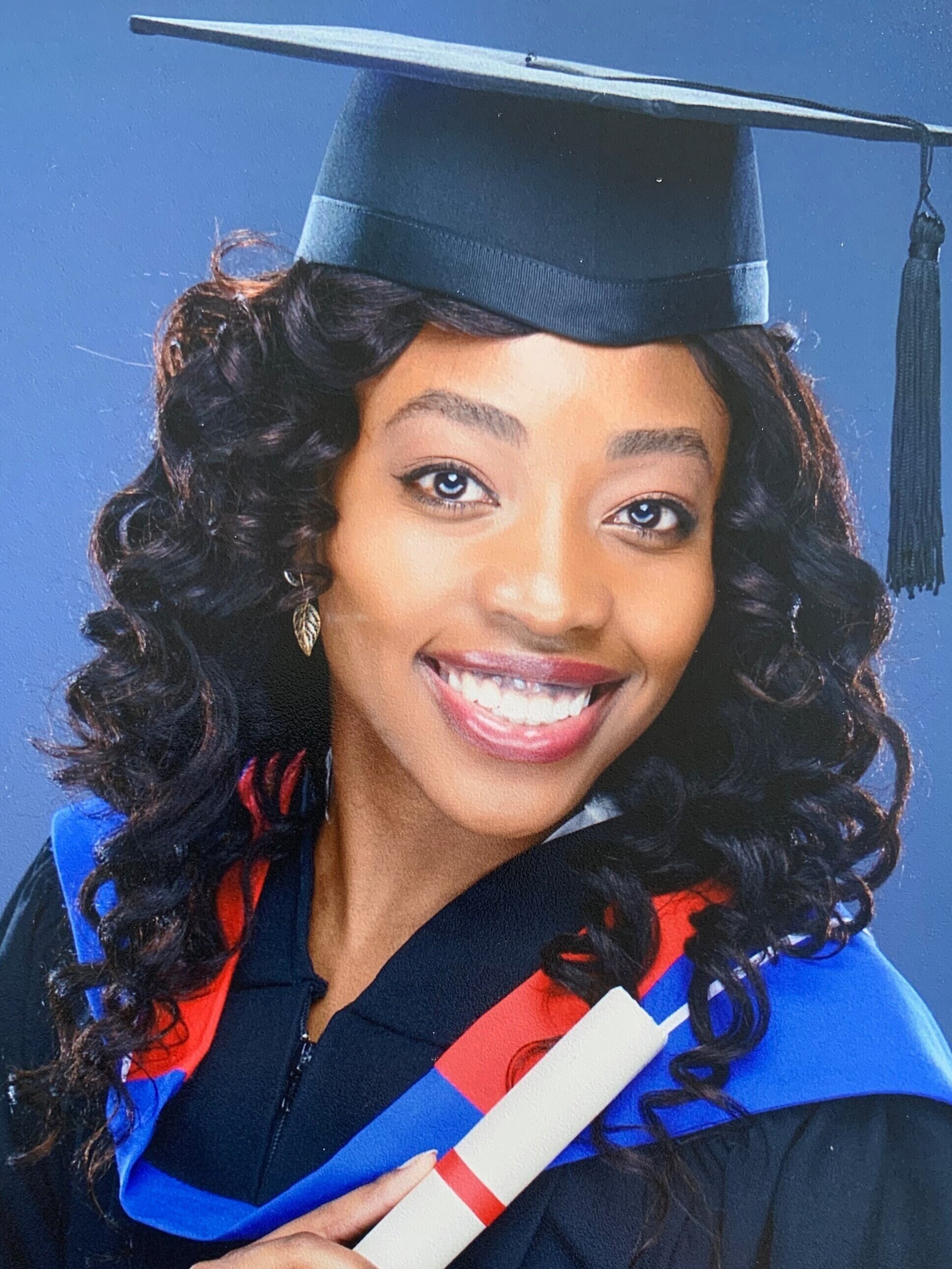Canadian is Princeton's first Black valedictorian
June 24, 2020
To be the class valedictorian is a big deal.
It’s huge when you are Black and is nominated to address your Ivy League school class.
Still in a state of euphoria, imagine your absolute shock after finding out two weeks later while being interviewed for your university’s podcast that you are the first Black valedictorian in the 274-year history of Princeton University that is the fourth oldest American institution of higher learning after Harvard, the College of William & Mary and Yale.
Nicholas Johnson, who by the way is a proud Canadian, couldn’t believe his ears.
“They only informed me as a preface to a question, so they really put me on the spot,” said Johnson whose parents reside in Montreal. “That was just so very empowering to know, particularly given the university’s past ties to slavery. It is an incredibly meaningful achievement, but it also goes to show how much work still needs to be done and the fact that it has taken so long for there to be a Black valedictorian.”
A slave trade occurred on the campus 20 years after Princeton was established as the College of New Jersey in 1746 and the first nine university Presidents were slave owners.
Last year, Princeton Theological Seminary, which benefitted from the slave economy through bank investments and donors who profited from slavery, agreed to pay $27.6 million in reparations for the university’s historical ties to slavery.
Johnson’s historic feat triggered thousands of tweets, including one from Michelle Obama who graduated from the university in 1985.
“This Princeton alum is so proud of you, Nick,” she wrote. “Congratulations on becoming valedictorian- and making history. I have a feeling this is just the beginning for you, and I cannot wait to see everything you continue to achieve.”
The former First Lady’s message stood out for Johnson who developed a machine learning system to more robustly anonymize datasets than existing alternatives.
“It was incredible to see such support from a Princeton alum and one that I have gotten so much of support from over my years,” he said.
Canadian Prime Minister Justin Trudeau tweeted, ‘Nick, you’re making history and leading the way for so many. Congratulations on this achievement – Canadians are proud of you and we can’t wait to see what you do next. Good luck on the 31st!’
Media executive & philanthropist Oprah Winfrey and American Senators Kamala Harris and Cory Booker also turned to social media to express felicitations.
“In addition, I received congratulatory letters from Bahamas Prime Minister (Hubert Minnis) and Associate Justice of the Supreme Court of the United States and Princeton alum Sonia Sotomayor that touched my heart,” Johnson noted. “Seeing that type of support really made my week and I really hope that given the platform because of this really significant moment in history will hopefully inspire those students coming behind me who also strive to achieve their goals and possibly break barriers in doing so.”
Close friend Menelik Graham said Johnson, who was recognized with the Black Entertainment Television (BET) ‘Shine A Light’ Award on June 28, is the perfect person to make history.
They met at a welcome event for Black students at the start of their freshman year.
“Nick truly exemplifies what can happen when a brilliant person works hard in every aspect of his or her life,” said Jamaican-born Graham who graduated with a degree in Politics. “Not only was he dedicated to his school work and studies, but he also invested in relationships and friendships both on and off campus as he understood that college is about both intellectual pursuits and relationship building. It is truly a great experience when your friends are also your role models.”
Back in Montreal two days before the closure of the Canada/US border because of the COVID-19 pandemic, Johnson addressed his class at a virtual commencement on May 31.
“What is extremely rewarding is that it felt really incredible to have all the work that I have done during my four years at Princeton being recognized by such a significant honour,” he said. “I also felt very humbled to have the privilege of addressing my class on this very special day of our lives.”
Princeton’s focus on undergraduates appealed to Johnson who was the recipient of the Dr. Frank Castellano Prize in Operations Research & Financial Engineering, the Challener Senior Prize administered by Princeton’s Canadian Studies Program and the James Hayes-Edgar Palmer Prize in Engineering.
The undergraduate population is about 6,000 compared with 1,000 graduate students.
“That translates into a very strong focus that professors place on undergraduate academics and research,” said Johnson who interned at the Montreal Institute for Learning Algorithms and Oxford University’s Integrative Computational Biology & Machine Learning Group, developing and implementing a novel optimization technique. “Through its resources, the university offers incredible support to independent projects and for international experiences which I was able to benefit from. Those were transformational experiences.”
He spent two months in England engaged in an International Internship Program and was a member of the Engineering Without Borders Peru team implementing a water distribution system in the Central American country and an exchange program with Morningside College at the Chinese University of Hong Kong three years ago.
A love of Math and Science fuelled his desire to pursue Financial Engineering.
“Growing up, I competed in Math competitions and played chess competitively,” said Johnson who was one of 12 Quebec Rhodes Scholar finalists this year. “I have always had a very analytical mind and when I arrived in college, I really felt like Engineering was an ideal discipline for me to pursue because it allowed me to continue to develop my analytical and quantitative mindset and a skill set that allows me to very concretely tackle real problems by building innovative systems. During my first year in the Engineering curriculum, I took my first Computer Science class and I really fell in love with it. That experience motivated me to develop my proficiency in Math and Computer Science during my remaining years at Princeton.”
Nicholas Johnson
Johnson’s senior thesis focused on developing high-performance and efficient algorithms to solve a network-based optimization problem that models a community-based preventative health intervention designed to curb the prevalence of obesity in Canada.
“This health intervention I was considering was based on the creation of a mentor/mentee relationship between healthy individuals and those who are either obese or at higher risk becoming obese,” he said. “The idea is that obesity is a health condition that’s largely impacted by behaviours that are learned from people you interact with frequently. So if my good friend exercises a lot, I am more likely to do so and that will have a positive effect on my likelihood of exhibiting obesity in the future.”
Johnson’s work also contains applications to public heath interventions designed to increase adherence to strict social distancing to curb the spread of COVID-19.
As part of another research project, he’s developing a reinforcement-learning agent to execute large financial trade orders with minimal market distortions.
Accepted into PhD programs at Harvard, Stanford, Columbia, the University of California-Berkeley and the University of Toronto, Johnson chose to join his cousin – Arthur Brown whose research focuses on electro-aerodynamic propulsion -- at the Massachusetts Institute of Technology (MIT).
Having Dr. Dimitris Bertsimas as his adviser is the main reason he selected MIT.
Recognized as an early pioneer in health care analytics, the Associate Dean of Business Analytics co-founded Benefits Science Technologies whose data science team is considered one of the world’s leading analytics, optimization and computer science teams.
“He has done foundational work in my field which is Operations Research and his research philosophy align strongly with mine,” said Johnson who was a recipient of the Class of 1883 English Prize for Freshmen in the School of Engineering, a two-time winner of the Shapiro Prize for Excellence and the co-recipient of the Class of 1939 Princeton Scholar Award. “I do think he’s an individual I have an incredible amount to learn from and I am very excited to be studying under his guidance.”
In 1953, MIT introduced an Operations Research curriculum -- the first of its kind in the United States -- that challenges students to apply scientific methods to decision-making and instructs them how to use those techniques in such fields as education, industry and public service.
“It’s really a field that focuses on using data to derive insights for actionable policy decisions with applications across all sectors which is one of the reasons I like the field so much,” said Johnson who anticipates pursuing an entrepreneurial path working on solutions for heath care and finance after completing his studies. “It’s a field that provides me with the skill sets that will facilitate me having a wide-ranging impact.”
Before entering MIT in the fall, Johnson – who was a machine learning software engineer at Google’s California headquarters in his senior year – is interning as a hybrid quantitative researcher and software developer at the D.E Shaw Group that’s a global investment and technology development firm.
He started on May 26.
Johnson attributes much of his success to his parents who instilled a strong belief in the power of education.
“I think I very much have come to internalize that belief and really apply it in my life and the decisions I make daily,” he said. “They also taught me foundational values of respect for yourself and others, discipline and having confidence in pursuing your goals.”
Bahamian immigrant and Harvard graduate Dr. Dexter Gregory Johnson is a dual degree (M.D, D.D.S) board certified Oral and Maxillofacial surgeon while his wife of 30 years, Dr. Anita Brown-Johnson, is an Assistant Professor of Family Medicine at McGill University and Interim Chief of Family Medicine in the university’s Health Centre.
Nicholas Johnson and his sister Anastasia with their proud parents Drs. Dexter and Anita Brown-Johnson
Born in Montreal and spending 16 years in Jamaica before returning to join her parents, she was the only Black student among 12 in Concordia University’s Science College first cohort and the first to graduate in 1983 ahead of her classmates.
Johnson’s older sister, Anastasia Johnson, is pursuing a Master of Fine Arts at New York University’s Tisch School and was the first Quebec teenager to perform at Carnegie Hall.
Though busy in university, he found time to play chess and basketball and catch up on reading and listening to music to relax.
For young Black boys aspiring to follow his footsteps, the rising star has a special message for them.
“Explore your curiosity and find your passion then have the confidence to pursue that dream to the best of your ability,” said Johnson who was elected to Phi Beta Kappa in the fall of 2019 and Tau Beta Pi a year earlier where he served as President of the Princeton chapter last year. “Also, don’t feel intimidated by spaces you try to enter that might be dominated by people who don’t look like you.”
Wise words indeed.








